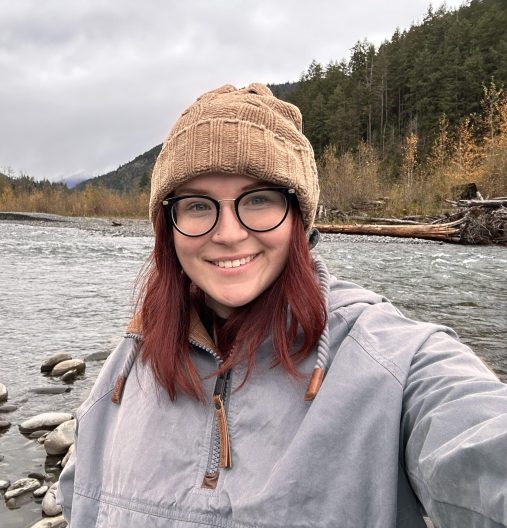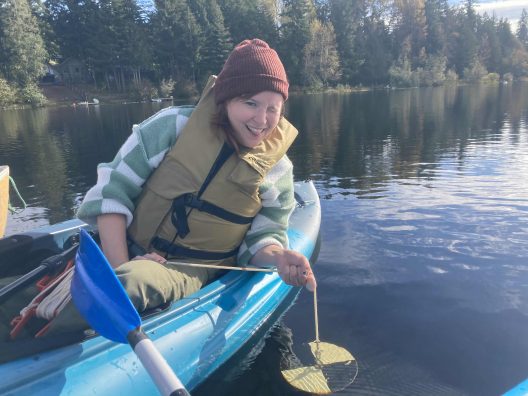Q&A with Kat Panebianco
Why did you decide to pursue a Master of Marine Affairs?
I’ve always loved the ocean but never quite felt at home in my oceanography undergrad. I felt there was more I could be doing for conservation and sustainability. When I read the course description and looked into the classes, I felt like they were made for me!

Why did you decide to attend the UW, and SMEA specifically, for graduate school?
I never expected to go to grad school when I was an undergrad. I graduated in December of 2019 and moved home to Nevada to help my family. When the Covid pandemic locked everything down in March 2020, every job and opportunity I was applying to had shut down. I worked odd jobs for a year before deciding I needed a new plan. I had fallen in love with the Pacific Northwest when I had lived in Arcata, California, and knew I wanted to go back. At the time I still pursued oceanography, which is why I set a goal to attend the University of Washington. I moved to Seattle in June of 2021 so I could get residency. Completely by accident, I met Professor LuAnne Thompson from the School of Oceanography at UW. From our chat, I learned about SMEA and looked it up the moment I got home. That interaction changed the trajectory of my life! I applied and received my acceptance letter exactly a year after I decided to attend grad school.
What can students who have deferred expect?
Yes, I was originally going to start in the fall quarter of 2022 but unfortunately had several life events happen earlier that year that threw off my plans. I reached out to our graduate advisor, Tiffany Comtois-Dion, and explained my situation. She was very helpful and allowed me to apply for a deferment, which I was granted. Deciding to wait was the best decision for me, and I am so glad I did because I was in a much better place to focus on school!
Tell us about your approach to the Courses-only track
I had already done a capstone in undergrad and a thesis through an NGO and I came to SMEA expecting to do a capstone. My decision ended up changing when I reflected on why I was in school: to gain more industry skills and to network. My goal is to work for an organization or a nonprofit and I wanted to be a competitive candidate. I switched my focus to include classes in coding, public policy, interviewing skills, and government management. One of the best parts is that I have been able to focus on work in addition to being a full-time student. I have funding as a teaching assistant, a work-study in the SMEA department, and an internship with a nonprofit called Free the Green, where I help rebuild local ecosystems and make them more resilient to climate change and human intervention.

What do you like most about SMEA?
I love the people in SMEA the most! I’ve learned so much from my cohort. SMEA is great because you can tailor your experience to be as quantitative or qualitative as you like. I’ve met so many interesting people with very niche interests, and I love that they have found a place where they can pursue those interests with supportive professors.
What’s it like living in Seattle? What do you do in your spare time? Any favorite local spots?
It’s all the best parts of living in a city and outside of a city. You can go to the mountains, the beach, and a concert on the same day. In the summer I love swimming, and my favorite spots are Golden Gardens (you can get an “ocean” view and mountain view in the same shot), the UW docks on Lake Washington, and the coves along the Montlake Cut. I love the live events like the Summer Solstice festival in Fremont and the weekly farmers/artists markets there and in Capitol Hill. I live right next to The Neptune theater and have been to a bunch of events there. Every neighborhood has great bookstores and cafes too. During the week I meet up with friends at a climbing gym or for trivia. I grew up in an area that was hard to get around so I love exploring the city because there is so much to do.